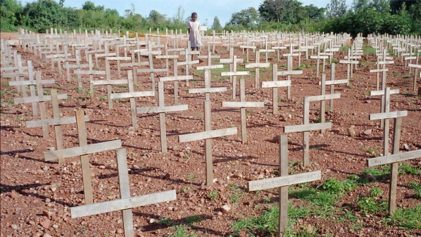A French military operation to secure the northern Malian town of Gao is still under way, nearly two weeks after French and Malian troops moved into the city, a military spokesperson said.
French troops are now searching out al-Qaida-linked rebels who may be mixed among the population of the town, after new clashes raised questions about the military’s hold over the north.
Colonel Thierry Burkhard, a French military spokesperson, said on Thursday that there was a risk of a “residual presence” of rebels among the population.
Rebels fired rocket launchers at French troops near Gao on Tuesday.
Further north in the area of Kidal, French Mirage 2000 and Rafale fighter jets have been hammering targets, including the rebels’ logistical depots and training camps, the French military says.
France launched a military operation in Mali on January 11 to help the Malian government restore control. Rebels linked to al-Qaida had imposed their own rule in northern Mali, then started pushing toward the capital last month.
Timbuktu drawdown
As the French have built up their presence in Gao, they have also started to draw down in Timbuktu on Thursday, where they have had greater successes in holding the town.
Soldiers in fatigues could be seen pushing an artillery cannon onto the barge crossing the Niger River, located on the southern perimeter of Timbuktu.
France has commandeered the river crossing, and on Thursday small convoys of military vehicles were lining up, waiting for the barge, including armored cars, trucks covered with camouflage-colored tarps, and vehicles loaded with supplies, such as cartons of bottled water.
While citizens in Timbuktu say they remain concerned about security, the French military says that it has completed its mission there.
“We have succeeded in handing over the majority of our responsibilities to the Malian army and now they will assume our duties. But we will not leave the city of Timbuktu completely,” said Captain Franck, an official with the French operation. He gave only his first name in keeping with military protocol.
Read more: Aljazeera.com

